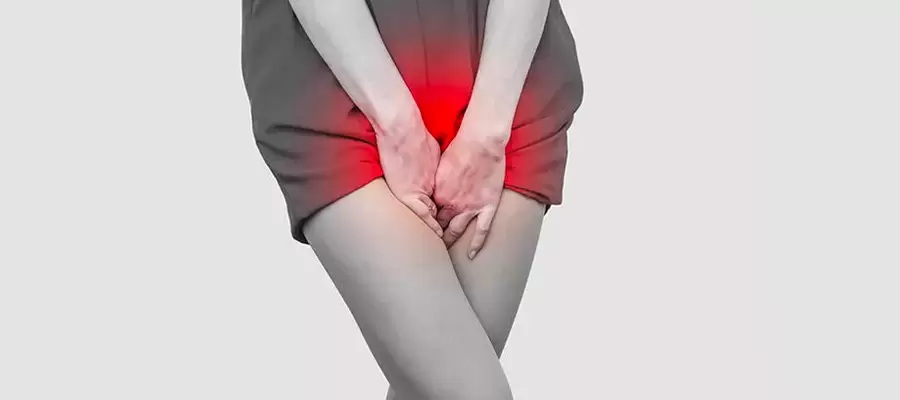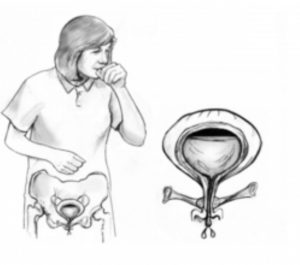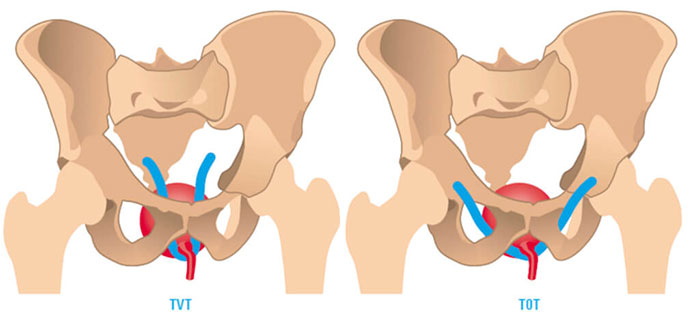
The medical condition of the patient with urinary incontinence is evaluated and treated. Urinary incontinence TOT operation It is a condition that is mostly treated with and is generally seen in women at older ages. Urinary incontinence creates serious problems in the social life of women. Women become hesitant to leave the house because they frequently experience urinary incontinence after menopause.
Some people consider urinary incontinence a normal effect of aging and do not need medical support. Some people are afraid of this situation and cannot tell anyone about it. urinary incontinenceIt may also be caused by other diseases such as urinary tract infection.
Urinary Incontinence TOT Operation You can find more information about and other types of treatment in the rest of our article. Op for the treatment of urinary incontinence in Istanbul. Dr. You can always contact Burçak Tok.
Causes of Urinary Incontinence
Urinary incontinence is a very common condition in children. Urinary incontinence is considered a normal condition until a certain age. In addition, urinary incontinence in adults may be the first symptoms of some serious disorders. Especially in women who have given birth, urinary incontinence may suggest pelvic organ prolapse. However, reasons such as menopause and urinary tract infections are also the most common causes of urinary incontinence in women. When the causes of urinary incontinence are examined in general, two headings can be mentioned: "urinary urge incontinence" and "stress urinary incontinence". Especially these two species are found together. Generally, the causes of urinary incontinence can be listed as follows;
- urinary tract infections,
- Menopause,
- hormone disorders,
- Pelvic muscle weakness,
- Senile,
- vaginal infections,
- difficult births,
- Excess weight (obesity),
- diabetes (diabetes),
- genetic factors,
- Bladder inflammations,
- Constipation,
- prostate enlargement,
- Cystitis,
- kidney stones,
- It can be seen in drug use such as sedatives, blood pressure medications and diuretics.
Urinary Incontinence in Women

Since the urethra is shorter in women than in men, urinary incontinence is more common. In some cases, the urethra may be damaged. The most important of these situations are pregnancy and birth. Especially difficult births, overweight babies and multiple births are triggers. However, during menopause, the urethra may not function fully. Other causes of urinary incontinence in women include conditions such as constipation, genetic factors, advanced age, sedentary life and excess weight. Specifically, women who had a first-degree relative (such as a mother or sister) with urinary incontinence were three times more likely to have the condition.
Urinary incontinence occurs in one in every four women and may develop due to some diseases. In this case, when the underlying cause of the disease is treated, urinary incontinence disappears. In some cases, urinary incontinence is permanent. This situation should be taken seriously and handled appropriately. in women urinary incontinence TOT operation It can be treated with. This treatment method gives very successful results.
Urinary Incontinence Risk Factors
- Systemic Diseases: Systemic diseases such as kidney diseases and diabetes increase the risk of urinary incontinence.
- Obesity: Urinary incontinence can develop from excessive weight gain and increased pressure on the bladder and pelvic floor muscles. Coughing, sneezing, and stress urinary incontinence are common due to weakened pelvic muscles.
- Gender: Urinary incontinence is much more common in women, both due to anatomical reasons and due to pregnancy, birth and menopause.
- Age: As we get older, the frequency of urinary incontinence increases due to the weakening of the bladder muscle structure and pelvic floor structure. However, urinary incontinence is not considered normal as a natural process of aging, and quality of life can be improved by treatment.
- Cigarette: Chronic cough and constant increase in intra-abdominal pressure due to smoking increase the risk of stress urinary incontinence. Additionally, smoking can affect the contractions of the bladder, causing overflow urinary incontinence.
What are the Complications of Urinary Incontinence?
Urinary incontinence can affect the individual psychologically and socially, as well as cause some physical disorders and diseases. People may find themselves in a difficult situation due to urinary incontinence both in daily and social life and in professional business life. This situation not only affects people's psychology, but also reduces their quality of life.
- Skin Problems: Urinary incontinence causes the genital area to constantly come into contact with urine and causes the skin to always remain moist, and after a while, rashes, skin rashes and wounds may occur in the genital area.
- Changes in Quality of Life: Urinary incontinence can negatively affect a person's quality of life. Due to the fear of urinary incontinence during sexual activity, the person's self-confidence decreases and avoidance of sexuality may be observed. Additionally, diseases such as anxiety and depression are common in women with urinary incontinence.
- Changes in Daily Activities: As a result of urinary incontinence and due to restrictions on sports and exercise, the thought of going to the toilet in planned places on a daily basis may limit the person's daily activities.
- Urinary tract infection: People with urinary incontinence may experience recurrent urinary tract infections.
- Changes in Business Life: Urinary incontinence negatively affects working life. It prevents participation in long meetings and can cause stress and distress in the person, causing concentration problems. It can also cause weakness and fatigue due to difficulty sleeping at night.

(Urinary Incontinence) Types of Urinary Incontinence
Stress Urinary Incontinence: Stress urinary incontinence, which is more common especially in young women who give birth vaginally, usually occurs drop by drop after actions such as laughing, coughing and sneezing. However, it may also occur after physical activities such as running, jumping, and lifting heavy objects. In these cases, the pelvic floor muscles cannot control the increased pressure in the bladder and the person experiences urinary incontinence. Stress type urinary incontinence TOT operation It can be treated with.
Urge Urinary Incontinence: Even though the bladder is not full, the person experiences a feeling of urgency. It can be seen in people with urinary tract infections, bladder stones, and diseases such as Alzheimer's and Parkinson's. In this type of urinary incontinence, irresistible or uncontrollable contractions occur suddenly that put pressure on the bladder. In this case, urinary incontinence occurs even when the person does not want to leak urine and tries to control it.
It does not depend on age and gender. One of the most important causes of urinary incontinence, which can affect every individual, is cold weather. The reason is cold weather, which causes the bladder to suddenly contract. At the same time, the sound of water can also be a trigger in some cases.
Overflow Urinary Incontinence: It is the leakage of urine as a result of not feeling the bladder even though it is full.
Total Urinary Incontinence: Total incontinence is often seen in Alzheimer's and Parkinson's diseases. They constantly leak urine and do not notice it.
Urinary Incontinence (TOT Operation) Treatment
İdrar kaçırma toplumun tahmin ettiğinden daha fazla görülen bir hastalıktır. Bütün kadınların neredeyse yarısı, hatayı boyunda idrar kaçırma sorununu yaşayacaktır. Bunların birçoğu günlük yaşamda üstesinden gelebilecek bir durumdayken yaklaşık %10-20’sinde oldukça rahatsız edici idrar kaçırma gelişecektir.
Urinary incontinence is not a natural condition that only accompanies the aging process. Urinary incontinence is not considered a normal condition, no matter what age it occurs. Depending on the patient's age and characteristics, there are treatment options that will completely eliminate or at least reduce urinary incontinence.
However, urinary incontinence due to bladder prolapse is very common, especially in women. Therefore, when treating urinary incontinence, it is important to carefully evaluate the individual's complaints and evaluate any problems related to the pelvic organs. 
Urinary Incontinence TOT Operation
Urinary Incontinence TOT OperationIt is an operation performed for the treatment of stress urinary incontinence. It is a 20-25 minute operation performed under general or spinal anesthesia. It is performed by making a small 1 cm incision just below the urine outlet. Urinary incontinence is prevented with a sling placed under the urethra through the incision. The incision is then stitched and the operation is completed. Since self-dissolving thread is used while stitching, there is no need to remove the threads.
Frequently Asked Questions About Urinary Incontinence TOT Operation
1- What are the Risks of Urinary Incontinence TOT Operation?
In experienced hands, risks are very rare. Bladder damage, urinary dysfunction, signs of urgency, blood vessel damage, vaginal patch erosion, pelvic pain, pain during intercourse, and urinary incontinence are possible risks.
2- What is the Recovery Process After Urinary Incontinence TOT Operation?
Urinary incontinence TOT operation Afterwards, recovery will be quite rapid. You can continue your light daily activities after about 1 week. A small amount of vaginal bleeding and discharge may occur. Pain medication will be given by the doctor so that you can take it when necessary after the operation.
3- When to Shower After Urinary Incontinence TOT Operation?
Urinary incontinence TOT operation You should wait 1-2 days before taking a shower afterwards. Avoid contact with hot water for the first few days. Do not take a vaginal shower and do not lie in the bathtub for 2 weeks.
4- How Long After Urinary Incontinence TOT Operation Can We Have Sexual Intercourse?
Sexual intercourse should not be had for an average of 1.5 months. This time will be enough for the vagina to regenerate.
5- What to Pay Attention to After Urinary Incontinence TOT Operation?
As with any surgery, regular care and adequate rest are recommended for TOT surgery. To speed up the healing process, it is recommended to follow the following recommendations:
- About 1.5-2 liters of fluid should be consumed per day.
- You should not drink more than 3 cups of coffee or tea a day as it can irritate the bladder.
- Do not smoke.
- You should be careful not to gain too much weight due to the risk of recurrence of the disease.
- Do not lift heavy loads.
- You should stay away from sexual intercourse for 6 weeks for the wound to heal.
6- How Long Does Urinary Incontinence TOT Operation Last?
It is a very effective method against the problem of urinary incontinence. This operation, which is performed 2-3 times a week, takes approximately 20 minutes.
7- How to Examine Urinary Incontinence in Women?
During gynecological examinations, a simple but important test is performed based on observing urinary incontinence by coughing or applying force to the patient to increase intra-abdominal pressure. These tests are based on measuring bladder pressure at rest and during urination.
8- What Causes Urine Leakage in Women?
Some causes of urinary incontinence in women include constipation, genetic factors, advanced age, inactivity and excess weight. The risk of developing the disease is three times higher, especially in women whose first-degree relatives, such as a mother or sister, have urinary incontinence.
9- Does Urinary Tract Infection Cause Urinary Incontinence?
Normally, bacteria from the external urinary tract travel up the urinary tract and multiply in the bladder. Once it proliferates, it causes a number of symptoms. These; Burning sensation while urinating, groin pain, urinary incontinence, nausea, vomiting and frequent urination.
10- Urinary Incontinence is a symptom of which disease?
Other problems associated with urinary incontinence should be investigated. While the problem may be simple urinary incontinence, the underlying cause can sometimes be a sign of diabetes and various nervous system diseases. If blood sugar is high, the person urinates more frequently and the risk of urinary incontinence increases.


